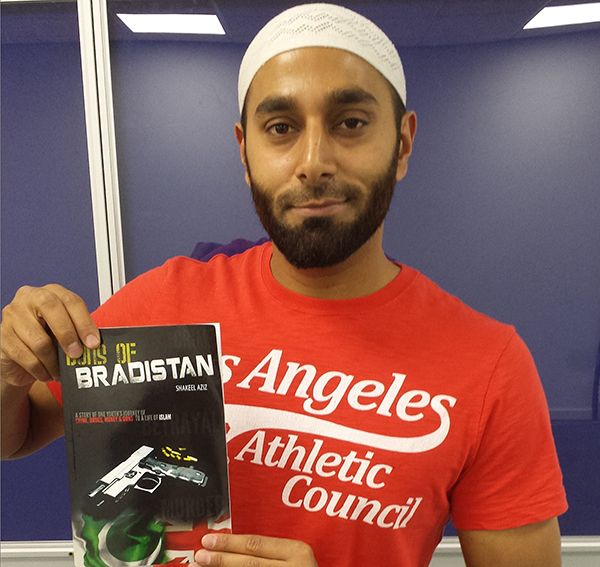An exhibition of new artworks exploring The Partition of India in 1947 has opened at Soho House in Birmingham.
The People of Partition in Birmingham is a new exhibition which explores how people living in Birmingham understand the 1947 Partition of India. The exhibition has been curated by artist Tasawar Bashir, in collaboration with 20 volunteers from the West Midlands who have helped to co-curate and design the display.
The exhibition champions local stories and insights and features creative responses to some of the themes surrounding Partition, such as collective displacement, turmoil and changing identities.
The exhibition team began to develop the artworks during a series of workshops held at Birmingham Museum & Art Gallery during the summer of 2017, with the aim of reflecting some of the complex feelings and thoughts evoked by the subject of the Partition. They drew inspiration from personal stories of people who were directly affected, as well as powerful memories passed down within families.
The exhibition marks the mid-point of an 18 month project called The Partition Trail, led by Sampad South Asian Arts and Heritage and supported by the National Lottery through Heritage Lottery Fund. The project is examining the lasting impact of the Partition on communities in Birmingham and the West Midlands.
Many of its related themes, such as the concept of changing national identity, invisible partitions in today’s society and the impact of migration on younger generations, remain globally topical today.
One of the artworks will give visitors a chance to help build the project’s research by creating a data visualisation which maps their physical and emotional response to Partition by using coloured strings to map where their families originated from and where they went on to settle in Birmingham.
Visitors will also be able to hear personal stories relating to Partition via a series of audio boxes as well as watching filmed interviews on a large plasma screen.
Tasawar Bashir, lead artist for The People of Partition in Birmingham exhibition said: “Working collaboratively with the volunteer co-curators has really empowered them to challenge traditional approaches to making art and encouraged them to think about the many different ways in which they can respond creatively to complex themes. As a result they are helping to tell the story of The People of Partition in Birmingham in a sensitive but thought-provoking way.”
Urmala Jassal, Sampad’s Associate Director and Partition Trail project manager, says: “The People of Partition in Birmingham exhibition will provide a compelling insight into the Partition’s lasting impact on the cultural landscape of our city and its residents. We hope that it will also encourage the younger generations from South Asian communities who have been indirectly affected by Partition to gain a deeper understanding of their cultural heritage”.
On 15 August 1947, millions of people in the Indian subcontinent woke up to find that they had a new identity. They were no longer part of British India, instead they were either ‘Indian’ or ‘Pakistani’. This was a result of monumental political decisions that were taken, as the British Government scrambled to ease its retreat from India and the Empire, against a backdrop of escalating political and social tensions within the subcontinent.
The Partition triggered the largest mass migration in human history, forcing the traumatic displacement of more than 14 million people as vast numbers of people moved across the border between the two newly formed states. It provoked horrific violence and resulted in the loss of an estimated two million lives.
Over the course of the decades that followed, prompted by a variety of factors, large swathes of people made the move from India and the newly created Pakistan, particularly from the divided state of Punjab, to settle in Birmingham and the West Midlands. Census records build a picture of the indirect influence of the Partition on patterns of migration and settlement in the region, which can still be recognised today.
The People of Partition in Birmingham runs to 29 April 28 at Soho House, Birmingham
Image credit: Jas Sansi for Sampad

